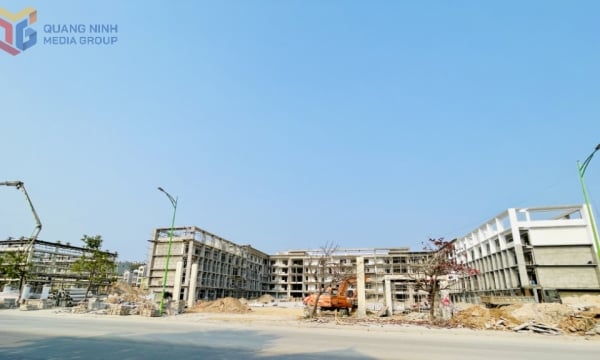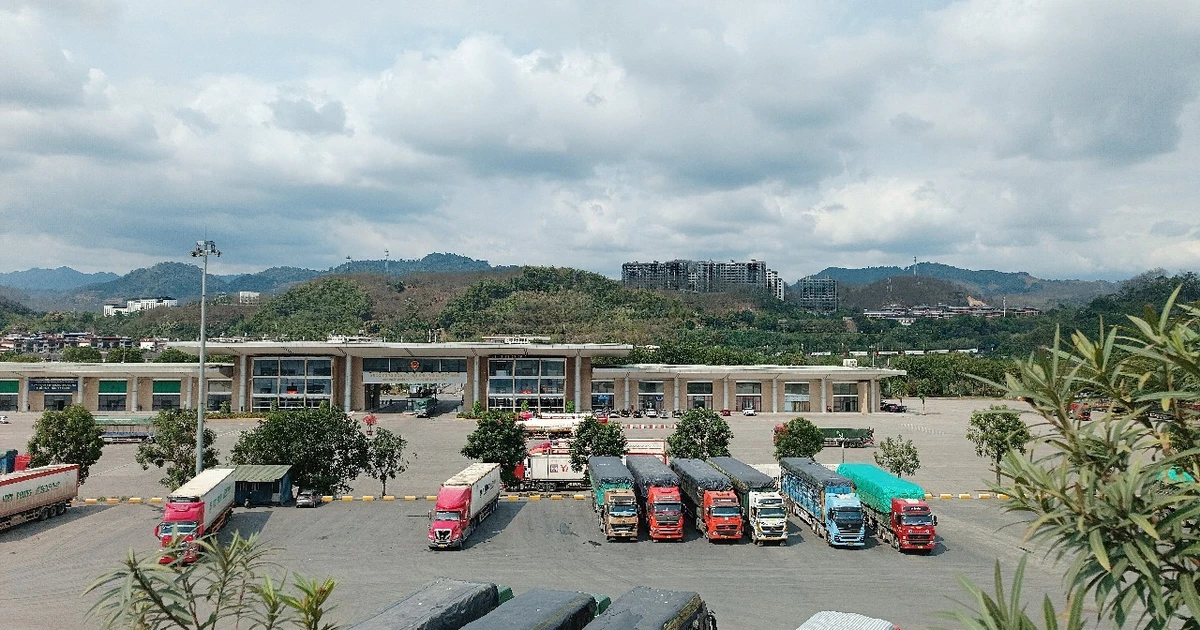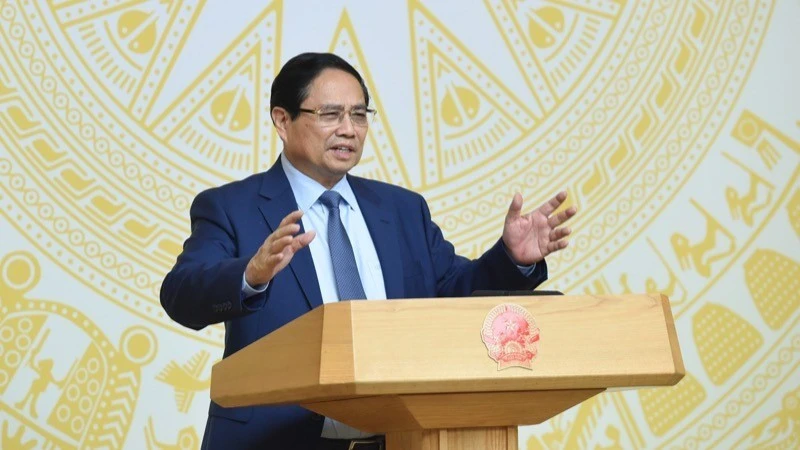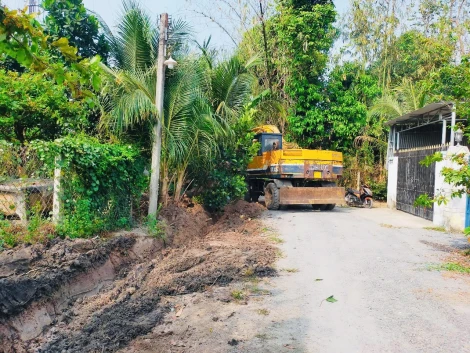Proposal to establish a National Social Housing Development Fund
Social housing (NƠXH) is a type of real estate product that has support from the State's policy mechanism. The competent authority will control costs (determine selling prices), control profit norms (not exceeding 10% of total investment), limit the buyers (beneficiaries)... Therefore, the State's capital support policies for enterprises developing NƠXH play a very important role.

The Ministry of Construction is seeking comments on the Draft Resolution on piloting a number of specific mechanisms and policies for social housing development for the Government to consider and submit to the National Assembly for approval. The Draft stipulates many preferential and more open mechanisms for social housing project investors. Notably, the Draft proposes the establishment of the National Social Housing Development Fund, a non-state budget financial fund established by the Government from the State budget and other legal capital sources, to support interest rates on loans without requiring collateral; support businesses investing in the construction of social housing, beneficiaries of social housing policies.
According to Dr. Vo Tri Thanh, Director of the Institute for Brand and Competitiveness Strategy Research, in the context of rising real estate prices, the establishment of the National Housing Fund is considered an important "lever", helping millions of people have the opportunity to access suitable housing, regulate the real estate market, and limit speculation.
Currently, Vietnam does not have a financial fund to support resources for localities and enterprises to implement social housing. Although the Housing Law 2023 allows provincial People's Committees to allocate the State budget for compensation, support, resettlement, and infrastructure investment, the Public Investment Law does not have regulations on allocating the State budget for compensation for site clearance to implement social housing projects. This is a shortcoming, leading to the use of the budget for compensation for site clearance and investment in technical infrastructure construction at local social housing projects being "frozen".
Therefore, the establishment of the National Social Housing Fund will be an important premise to help localities allocate funds to clear “clean” land for enterprises to build social housing; invest in technical infrastructure and social infrastructure for social housing projects; and support loan interest rates. If implemented properly, this model can become an important solution to help many people access affordable and stable housing and develop a sustainable real estate market.
Operating a direct model to create low-cost housing
According to Mr. Nguyen Anh Que, Chairman of G6 Group, the National Housing Fund should follow the model of directly creating low-cost housing products to provide for low-income urban people. Accordingly, the method is for the State to create a clean land fund and bid to select investors to implement the project. Unlike social housing which is exempted from land use fees, the National Housing Fund's projects still collect land use fees at a moderate level, lower than commercial housing projects. The State still controls the investor's profit margin, but it is 10% higher than the current profit margin of social housing projects.

For example, a social housing project with a scale of 20 floors above ground and 1 basement, the total construction cost is 16 million VND/ m2 , plus the investor's profit of 4 million VND/ m2 , the selling price will be 20 million VND/ m2 . With a project of such scale, the commercial housing project has a large land use fee, the investor's profit is high, so the selling price can be up to 70 - 80 million VND/ m2 . But if the project belongs to the National Housing Fund, with moderate land use fee collection, controlling the profit margin below 20%, the price will only be about 30 million VND/ m2 ...
Before implementing projects under the National Housing Fund, the representative of G6 Group emphasized that it is necessary to make statistics on the housing needs of each locality at the present time, as well as forecast the medium and long term, then do a good job of planning, and then bid to select project investors.
“The National Housing Fund should not only focus on social housing (low-income segment), but also support the segment for low-middle income people. For the fund to operate effectively and sustainably, there needs to be a flexible, transparent capital mobilization mechanism and a tight operating model,” said Mr. To Anh Hung, real estate expert and CEO of A-City.
In fact, the low-middle income group, accounting for 40-50% of the urban population, is facing difficulties in accessing housing, not eligible to buy social housing, but not able to afford to buy commercial housing. If only social housing is developed, this group will be left behind.
“If we only develop social housing, the affordable housing segment will still be in short supply. Currently, most businesses are chasing high profits from the mid- and high-end segments. If they have funds, they can consider building housing with more reasonable prices. Thanks to that, people who need housing but cannot afford to buy social housing will have more options, can buy a house, do not need to borrow too much, reducing pressure on personal finances and the banking system,” said Mr. To Anh Hung.
Real estate experts suggest that, first, it is necessary to support home loan interest rates for the low-middle segment. The Fund can support preferential loan interest rates (for example, 4-6%/year) for home buyers in the low-middle segment, similar to social housing support programs.
Second, incentives for businesses developing affordable housing, according to A-City's calculations, are about 35 million VND/ m2 in Hanoi, by supporting clean land funds, exempting or reducing taxes for businesses developing projects, and having legal support policies to reduce input costs, helping businesses to sell low-priced houses and still make a profit.
For the National Housing Fund to operate effectively and sustainably, many experts believe that there needs to be a flexible, transparent capital mobilization mechanism and a strict operating model. In terms of operation, the Fund should operate independently, with close supervision, and a clear and transparent mechanism. The Fund Management Board includes representatives of the State, enterprises, real estate experts and banks. The Executive Board is responsible for operating the Fund, reviewing projects, and controlling finances. The independent monitoring board will audit and make public and transparent the Fund's operations, periodically publish audited financial reports, and avoid loss and corruption.
Dr. Le Xuan Nghia, member of the National Monetary Policy Advisory Council, said that Singapore is one of the most successful models in the world in developing public housing, a type of housing that has many similarities with social housing in Vietnam. The important decision that created the success in developing public housing in Singapore was the establishment of the Housing & Development Board (HDB), an agency that focuses on planning, building and managing all public housing.
Regarding financial support and home loan policies, the Singaporean Government creates conditions for people to own a house through preferential loan programs and subsidies. Specifically, employees and businesses allocate a portion of their monthly income to the Central Provident Fund (CPF). Money from this fund can be used to buy HDB houses. With the HDB home loan program, people can borrow money to buy a house directly from HDB at a low interest rate (about 2.6%/year, lower than commercial interest rates).
Source: https://baolaocai.vn/can-co-che-huy-dong-von-linh-hoat-cho-quy-nha-o-quoc-gia-post399531.html



![[Photo] Special relics at the Vietnam Military History Museum associated with the heroic April 30th](https://vstatic.vietnam.vn/vietnam/resource/IMAGE/2025/4/3/a49d65b17b804e398de42bc2caba8368)
![[Photo] Comrade Khamtay Siphandone - a leader who contributed to fostering Vietnam-Laos relations](https://vstatic.vietnam.vn/vietnam/resource/IMAGE/2025/4/3/3d83ed2d26e2426fabd41862661dfff2)

![[Photo] Prime Minister Pham Minh Chinh receives CEO of Standard Chartered Group](https://vstatic.vietnam.vn/vietnam/resource/IMAGE/2025/4/2/125507ba412d4ebfb091fa7ddb936b3b)
![[Photo] Prime Minister Pham Minh Chinh receives Deputy Prime Minister of the Republic of Belarus Anatoly Sivak](https://vstatic.vietnam.vn/vietnam/resource/IMAGE/2025/4/2/79cdb685820a45868602e2fa576977a0)




















































































Comment (0)